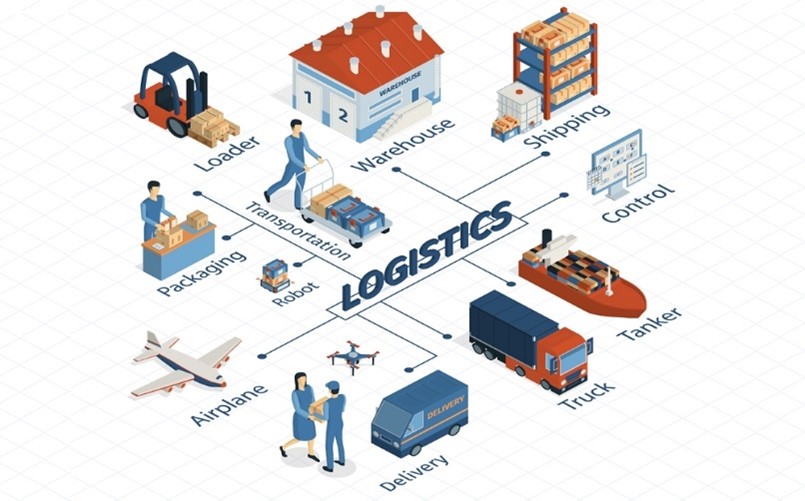“In India things are changing quickly which has grown to be the 5th largest economy in the world. Everyone wants their luggage to go as rapidly as a cheetah”
PM Modi said in afternoon at National Logistic Policy launch with reference to Cheetah brought from Namibia he freed in the morning.
In the corridors of India’s bustling factories and logistics hubs, a revolution is underway—one that promises to reshape the nation’s economic landscape and unleash a tidal wave of job opportunities. At the heart of this transformation lies the ambitious vision of “Local to Vocal,” PM Modi’s clarion call to prioritize local sourcing and manufacturing, and propel India to the forefront of global supply chain dominance.
This seismic shift is not merely about erecting new factories or optimizing logistics networks; it’s about catalyzing a job revolution that will touch every corner of the nation. Recent data paints a compelling picture of this transformation, with a surge in domestic production driving a staggering 25% increase in job creation across manufacturing hubs. From the shop floor to the boardroom, the demand for skilled talent in production, logistics, and management is soaring, heralding a new era of economic empowerment.
But it’s not just about brawn; it’s about brains too. As India embraces the digital age, the demand for tech-savvy supply chain specialists has reached unprecedented levels. With a 40% year-on-year increase in job postings for data analysts and automation experts, India’s supply chain sector is emerging as a crucible of innovation, creating a fertile ground for tech-driven job creation.
Yet, amidst the digital revolution, the human touch remains indispensable—nowhere more so than in the realm of last-mile connectivity. With the e-commerce boom driving a 50% surge in demand for delivery executives and logistics coordinators, the last mile has become the frontline of India’s job revolution, offering opportunities for millions to carve out a livelihood in the digital age.
 Fuelling this entrepreneurial odyssey are visionary individuals seizing the opportunity to build the backbone of India’s supply chain ecosystem. Recent data showcases a 35% increase in the establishment of local distribution centres and packaging units, as entrepreneurs leverage the “Local to Vocal” mantra to chart a course towards economic resurgence and self-reliance.
Fuelling this entrepreneurial odyssey are visionary individuals seizing the opportunity to build the backbone of India’s supply chain ecosystem. Recent data showcases a 35% increase in the establishment of local distribution centres and packaging units, as entrepreneurs leverage the “Local to Vocal” mantra to chart a course towards economic resurgence and self-reliance.
But the revolution isn’t confined to the factory floor; it’s unfolding in boardrooms and consultancy firms too. With a 50% surge in demand for supply chain consultants, driven by the localization wave, India’s consulting titans are playing a pivotal role in shaping the future of supply chain management, driving efficiency, and creating new avenues for job growth.
Yet, amidst the pursuit of economic prosperity, India remains steadfast in its commitment to sustainability. With a 30% increase in hiring for sustainability coordinators and waste management specialists, India is pioneering green supply chain practices, creating a new breed of eco-conscious jobs, and leading the charge towards a greener, more sustainable future.
 “India’s todays efforts and focus to decarbonise its surface transport is building both green economy and logistic network for businesses” said Abhijeet Sinha, Project Director, National Highway for Electric Vehicle (NHEV) Pilot under EoDB Services.
“India’s todays efforts and focus to decarbonise its surface transport is building both green economy and logistic network for businesses” said Abhijeet Sinha, Project Director, National Highway for Electric Vehicle (NHEV) Pilot under EoDB Services.
“After a few successful pilots in response to a federal subsidy program, India rolled out a large, unified tender of 5,450 e-buses worth over $1 billion and spread across five states” said Union Minister for Environment, Forest and Climate Change, Govt of India – Shri Bhupender Yadav.
Secretary John Kerry, US Special Presidential Envoy for Climate, speaking on the occasion, said “with Payment Security Mechanism (PSM) we are taking a major footstep towards helping India electrify its bus fleet”. He said that this move was taking an Indian solution to maximize Indian opportunity to decarbonisation transportation sector.
“The confluence of forces created by the Govt in last 10 years by propelling the startup eco system, launching the Unified Logistics Interface Platform (ULIP) and RFID based FasTag system alongside of industry wide adoption of GPS based live tracking are all enabling amazing innovations in the field of logistics. This in turn, is enabling cost reductions, improving timeliness and visibility for movement of cargo in India which is going to fundamentally alter our logisitcs landscape, making products cost competitive. Industry estimates indicate that India has birthed over 3100 startups in Logistics-Tech, attracting over USD 10 billion in investments, which is evidence of the transformation of the sector into a sunrise Industry” – says Uddhav Kumar, Co-Founder and CEO of Lynkit.
At the helm of this transformation is the government, wielding policy levers to catalyze change and create an enabling environment for job creation. Through strategic interventions like tax incentives and infrastructure development, the government is laying the foundation for sustained job growth and economic prosperity, ensuring that no one is left behind in India’s march towards progress.
In the corridors of India’s bustling factories and logistics hubs, a revolution is underway—one that promises not just economic prosperity, but a brighter, more inclusive future for all. As India embraces the principles of “Local to Vocal” and charts a course towards supply chain dominance, the stage is set for a job revolution of unprecedented scale—one that will shape the nation’s destiny for generations to come.






